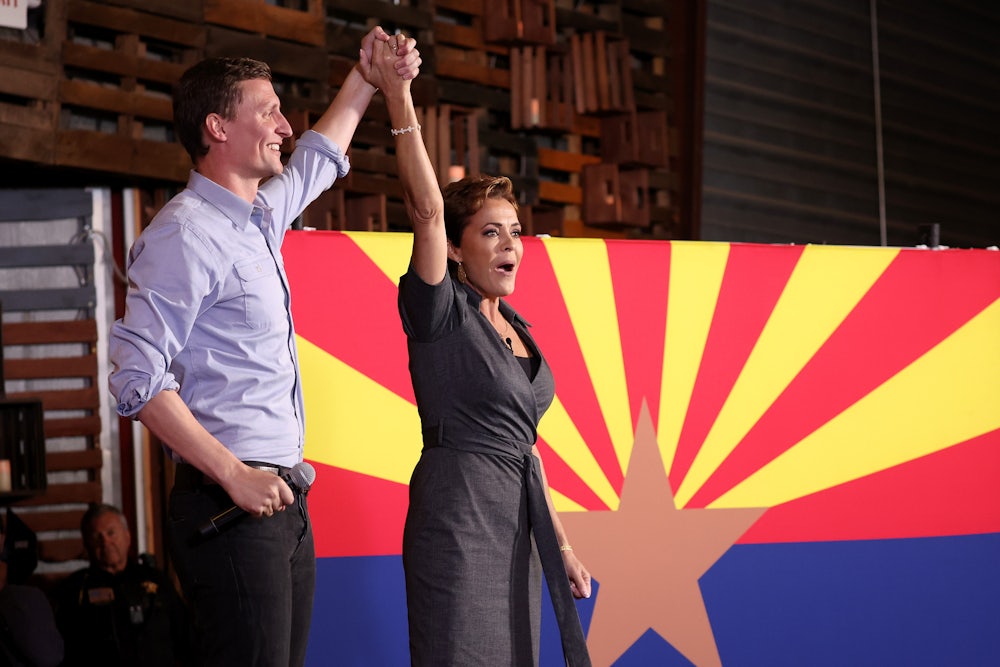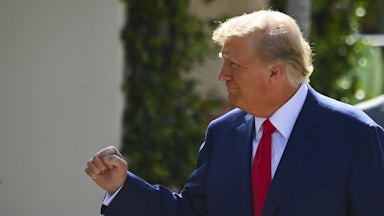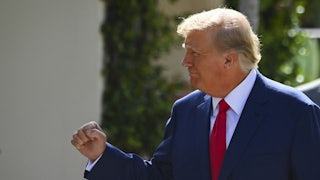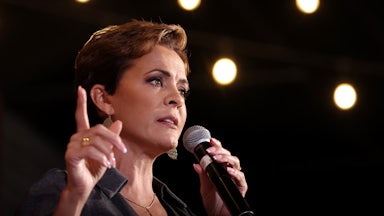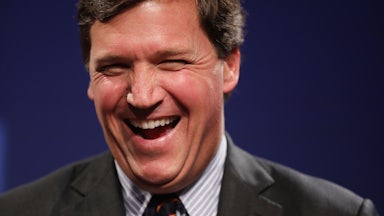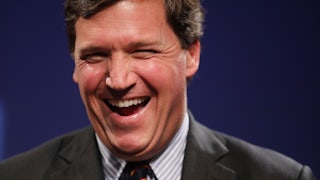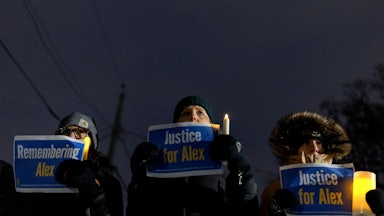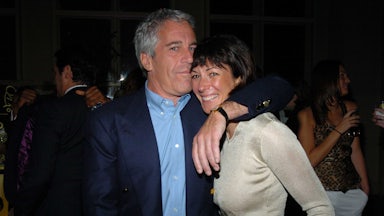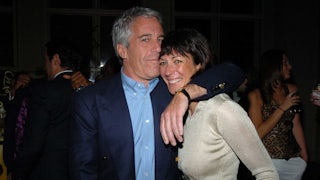As Republican voters prepared to head to the polls in this year’s midterm elections, there was one consistent message that GOP candidates had drilled into their heads over the course of weeks of windup: The election is being rigged.
True to form, Republicans kept on banging that drum on Election Day. “Reports are coming in from Arizona that the Voting Machines are not properly working in predominantly Republican/Conservative areas,” Donald Trump wrote on his janky Truth Social platform. “Can this possibly be true when a vast majority of Republicans waited for today to Vote? Here we go again? The people will not stand for it!!!” In another post, he falsely accused Michigan Democrats of stealing votes, urging his supporters to “Protest! Protest! Protest!”
This is nothing new for Donald Trump, who by now has logged a copious amount of hours alleging phantasmal voter fraud: In 2012, he called Obama’s reelection a “sham” and said that the United States is “not a democracy.” In both 2016 and 2020, he made false allegations of widespread fraud weeks before Election Day—in the latter case, those lies spurred his supporters to attack the Capitol on January 6, 2021.
Those false claims and the subsequent investigation into the January 6 riot were a major part of the Democratic message in their own lead-up to the midterm elections. But January 6 has arguably been more important for Republicans, for entirely different reasons. Across the country, candidates have adopted Trump’s strategy of endlessly and baselessly claiming fraud—going as far as to, like the godfather of these fantastical allegations, allege that widespread vote-rigging was already taking place.
There has been a lot of understandable hand-wringing about post-Trump candidates since even before Donald Trump was sworn in as president in early 2017. But what sets this election cycle apart from many others is that substantively affirming the lies that prompted the attack on the Capitol have not merely failed to be an impediment to seeking higher office in the Republican Party, they are—for all intents and purposes—a requirement. And while the early signs on election night pointed to the fact that these poor candidates may have been one of the reasons the promised “red wave” may ultimately fail to reach shore, there’s no reason to believe that Republicans will be chastened. Republicans have gone all in on brazen and absurd claims of widespread voter fraud.
Some of these assertions are relatively muted. “It is rare that I’ll do a town hall—and I’ve done dozens across the commonwealth—where someone doesn’t get up in a very agitated way and say they feel like their vote didn’t matter,” Republican Senate candidate Mehmet Oz told Newsmax in April, describing repressive voting laws as “not just a nice thing to do [but] the right thing to do.” This is basically the pre-Trump Republican line: that voter suppression measures are required to quell Republican fears of fraud, even though evidence of it is extraordinarily rare.
But most Republicans have embraced the Trumpian gospel of illusory voter fraud. Arizona, for example, has emerged as ground zero for GOP fraud claims. Speaking at a campaign rally in October, Republican Senate nominee Blake Masters told the audience that his dad was concerned about the upcoming election. If he won by 30,000 votes, he said, “they’ll just find 40,000 for [Masters’s Democratic opponent, incumbent Senator] Mark Kelly.”
“He invited me to prove him wrong,” Masters continued. “I said, ‘Dad, I can’t prove you wrong. All I know is, if those are the numbers, I’ve got to win by 80,000.’” The crowd cheered.
This is an odd closing message, as it raises an obvious question: If these insidious Democrats can find 40,000 votes, why can’t they find 90,000? Or 100,000? Or just 80,001?
Kari Lake, the former television journalist and current election denier who is the Republican nominee for the Arizona state House, made voter fraud a key part of her campaign. She told prospective voters over the summer that “we’re already detecting some stealing going on” ahead of the Republican primary. When voters finally went to the polls, she told them, “If we don’t win, there’s some cheating going on.” It’s a perfect distillation of Trumpian logic: The only way the election can be legitimate is if she wins it.
Other candidates are already laying the groundwork for legal challenges should their races not get called in a timely fashion. “With me at the top of the ticket, we’re going to be able to get everybody at the table and come up with a full plan, do our best to try to secure this election, get as many observers as we can, and file lawsuits early, if there are lawsuits we can file to try to tighten up the election,” Nevada GOP Senate candidate Adam Laxalt said in August. “There’s no question that, unfortunately, a lot of the lawsuits and a lot of the attention spent on Election Day operations just came too late.” Like many Republicans in close races that won’t be called quickly—such as Wisconsin, Pennsylvania, and Michigan, where GOP state legislators prevent absentee ballots from being counted before Election Day—lawsuits might follow predictable delays in vote counting.
But there are worse things than simply supporting the lies that underpinned the January 6 attacks. Republicans ran several candidates who attended the January 6 riot, including gubernatorial candidates in Pennsylvania and Maryland, as well as several politicians vying for seats in the House and Senate. The Republican narrative on the riot itself has shifted substantially over the last two years. Where many were quick to condemn an event that put their lives in danger, now few candidates refer to the event as a riot, let alone an insurrection.
The hope among some Democrats after January 6 was that Republicans would wake up to the threat of bogus claims about stolen elections: They can lead to violence, even insurrection. Instead, the opposite has happened. Rather than moving away from the idea that widespread voter fraud is occurring, more candidates than ever are telling their voters that Democrats are on the verge of stealing the election. It may be the case that cleaving to these beliefs restrained what should have been a larger midterm victory, but it will be hard to abandon those beliefs now that they need to be wielded as an excuse for this same underperformance. It’s an ominous sign, both for what governing will look like should these candidates win, but also for elections to come.
